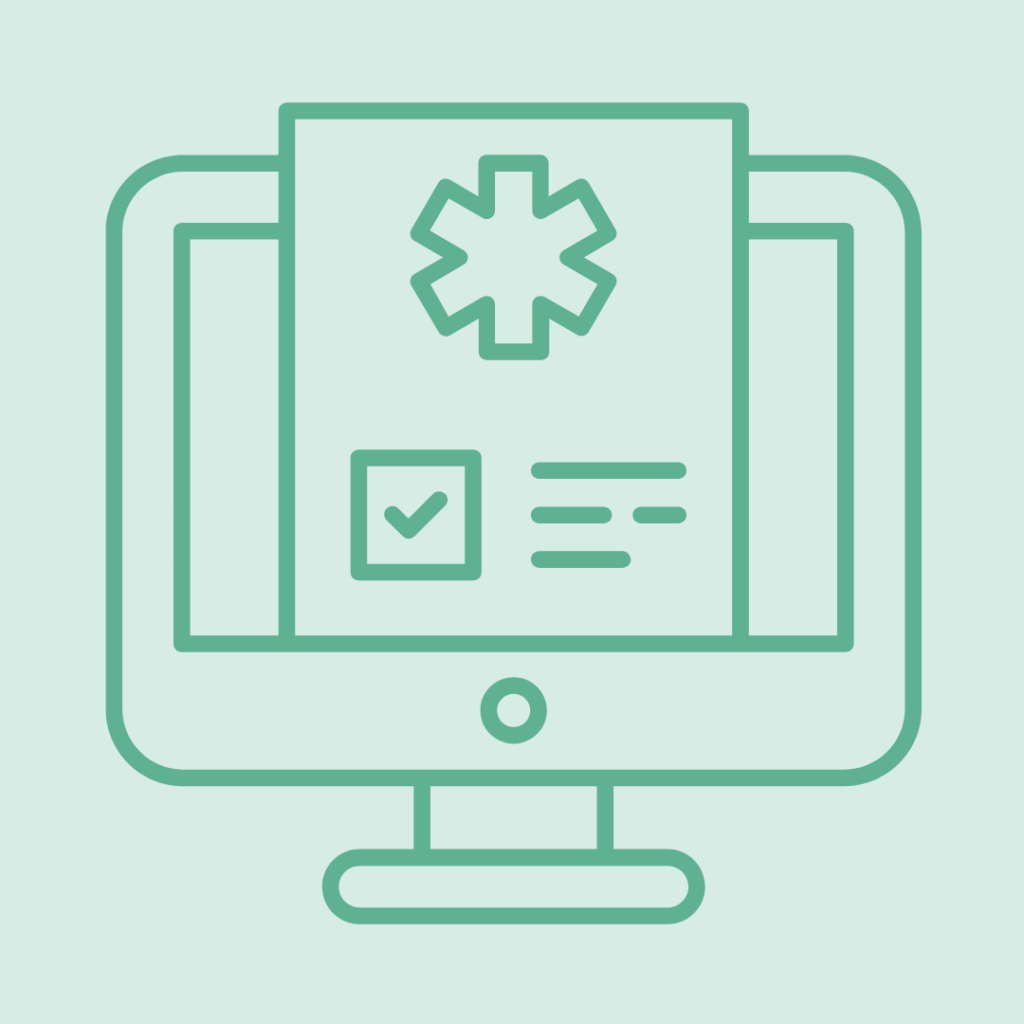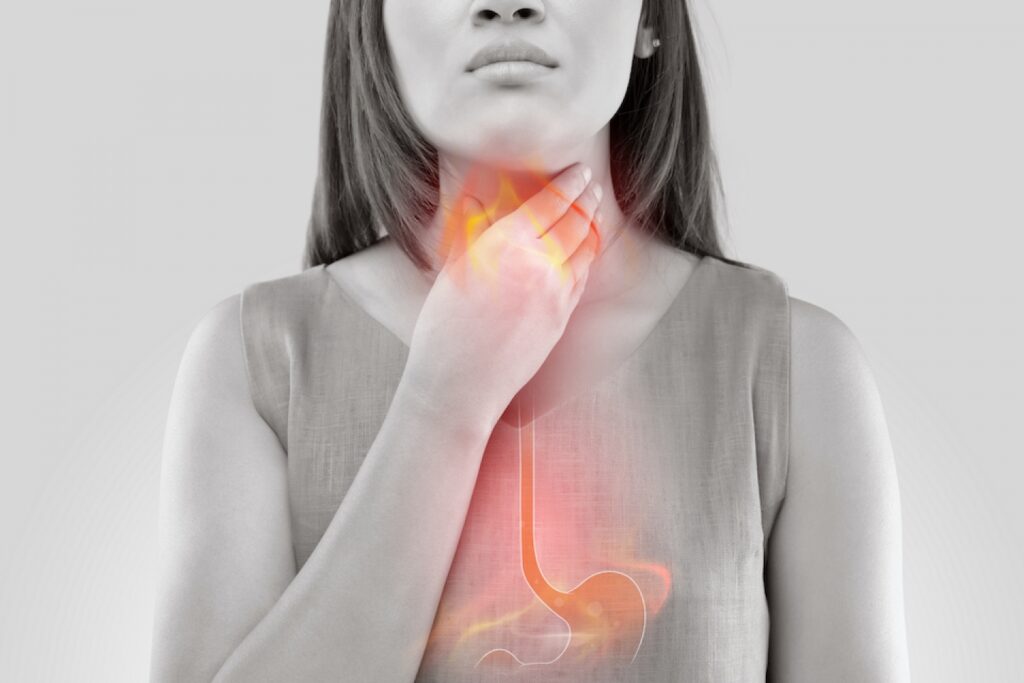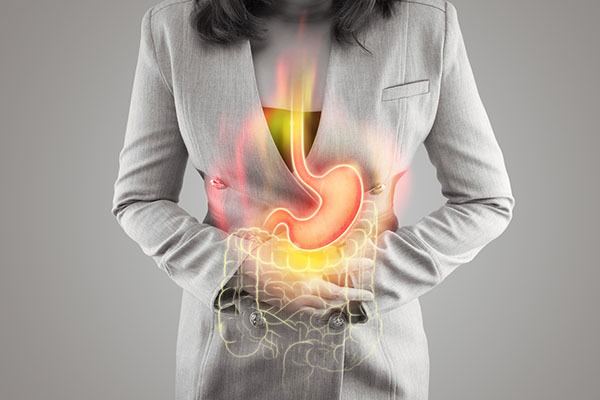Heartburn and Reflux treatment
6am - midnight, 7 days a week
Accessible from anywhere in Australia.
eScript in minutes
Medication delivery

What is heartburn and reflux?
Heartburn and reflux occur when stomach acid flows back into the esophagus, causing irritation and discomfort. Gastroesophageal reflux disease (GERD) is a chronic condition where acid reflux happens frequently, leading to potential complications if left untreated. Occasional heartburn is common and usually triggered by certain foods or lifestyle habits.
Heartburn and Reflux Treatment Options

Online Prescriptions
- For when your script has run out
- Script sent to your phone
- Doctor approved

Telehealth Consultations
- When you need to speak to a doctor
- Online, Video & Phone Call or Message
- Fast access to medical advice
Medical Certificates
- For when your script has run out
- Script sent to your phone
- Doctor approved

Reflux and Heartburn Symptoms
Symptoms can range from mild to severe and may include:
- Burning sensation in the chest (heartburn), often after eating or at night
- Acidic or bitter taste in the mouth
- Regurgitation of food or stomach acid
- Difficulty swallowing (dysphagia)
- Persistent cough or sore throat
- Hoarseness or voice changes
Understanding Heartburn & Reflux
Explore the causes, symptoms, and treatment options for heartburn and acid reflux.
Heartburn and reflux are typically caused by the backflow of stomach acid into the esophagus, often due to a weakened lower esophageal sphincter (LES). Triggers include certain foods, overeating, lying down after meals, obesity, smoking, and pregnancy.
Common symptoms include a burning sensation in the chest (heartburn), regurgitation of food or sour liquid, difficulty swallowing, and a chronic cough or sore throat. Symptoms often worsen after eating or when lying down.
Treatment includes lifestyle changes (avoiding trigger foods, weight management, elevating the head during sleep), over-the-counter antacids, H2 blockers, and proton pump inhibitors. In severe cases, medical or surgical intervention may be required.

Need a Specialist Referral?Get Yours in a Few Simple Steps!
Skip the long clinic waits and get referred to a specialist in minutes. The process is fast, secure, and simple.
- Quick access to specialist referrals – no in-person appointments needed
- Telehealth consultations with trusted, licensed doctors
- Fast, reliable service – referrals sent directly to your chosen specialist
- Convenient and affordable healthcare from your home
- No hidden costs – just simple, upfront pricing
Frequently
Asked Questions
Acid reflux occurs when the lower esophageal sphincter (LES), a muscle that acts as a valve between the stomach and esophagus, doesn’t close properly, allowing stomach acid to escape into the esophagus. Heartburn is one of the main symptoms of acid reflux. When acid reflux becomes chronic or occurs more than twice a week, it may indicate a condition called gastroesophageal reflux disease (GERD).
Acid reflux occurs when the lower esophageal sphincter (LES), a muscle that acts as a valve between the stomach and esophagus, doesn’t close properly, allowing stomach acid to escape into the esophagus. Heartburn is one of the main symptoms of acid reflux. When acid reflux becomes chronic or occurs more than twice a week, it may indicate a condition called gastroesophageal reflux disease (GERD).
Heartburn and acid reflux can be caused by a variety of factors, including dietary choices such as fatty, spicy, or acidic foods, and lifestyle habits like overeating, smoking, or lying down shortly after eating. Other contributing factors include obesity, pregnancy, certain medications, or medical conditions that affect the digestive system. Stress and lack of sleep may also worsen symptoms.
Preventing heartburn often involves making lifestyle changes and avoiding common triggers. Eating smaller meals, not lying down immediately after eating, and avoiding spicy, fatty, or acidic foods can help reduce symptoms. Maintaining a healthy weight, wearing loose-fitting clothing, and managing stress may also prevent heartburn episodes. Elevating the head of your bed can help reduce nighttime symptoms.
Treatment for heartburn typically involves lifestyle modifications and over-the-counter medications. Antacids, H2 blockers, and proton pump inhibitors (PPIs) are commonly used to neutralize or reduce stomach acid production. If symptoms persist or worsen, a doctor may prescribe stronger medications or recommend further testing to determine if an underlying condition like GERD is present.
You should see a doctor if you experience frequent heartburn (more than twice a week), if over-the-counter medications are no longer effective, or if symptoms interfere with your daily life. Seek immediate medical attention if you have severe chest pain, difficulty swallowing, unexplained weight loss, or vomit blood, as these may indicate a more serious condition.
If left untreated, frequent heartburn or acid reflux can cause complications such as esophagitis (inflammation of the esophagus), esophageal ulcers, or Barrett’s esophagus, a condition that increases the risk of esophageal cancer. Managing symptoms through treatment and lifestyle changes can help prevent these complications.
